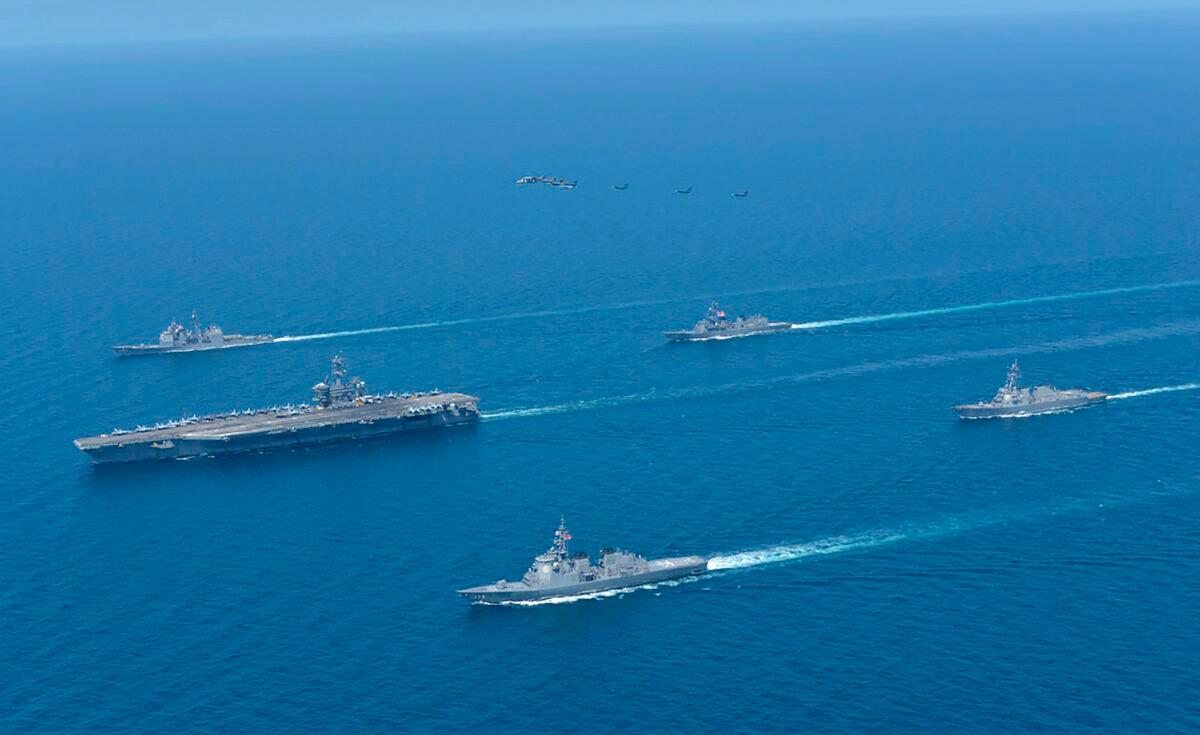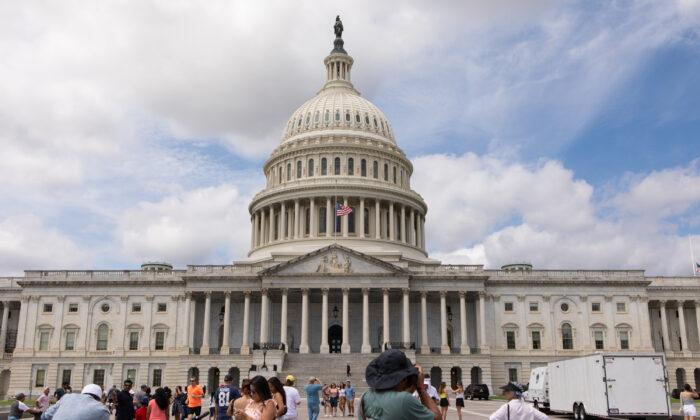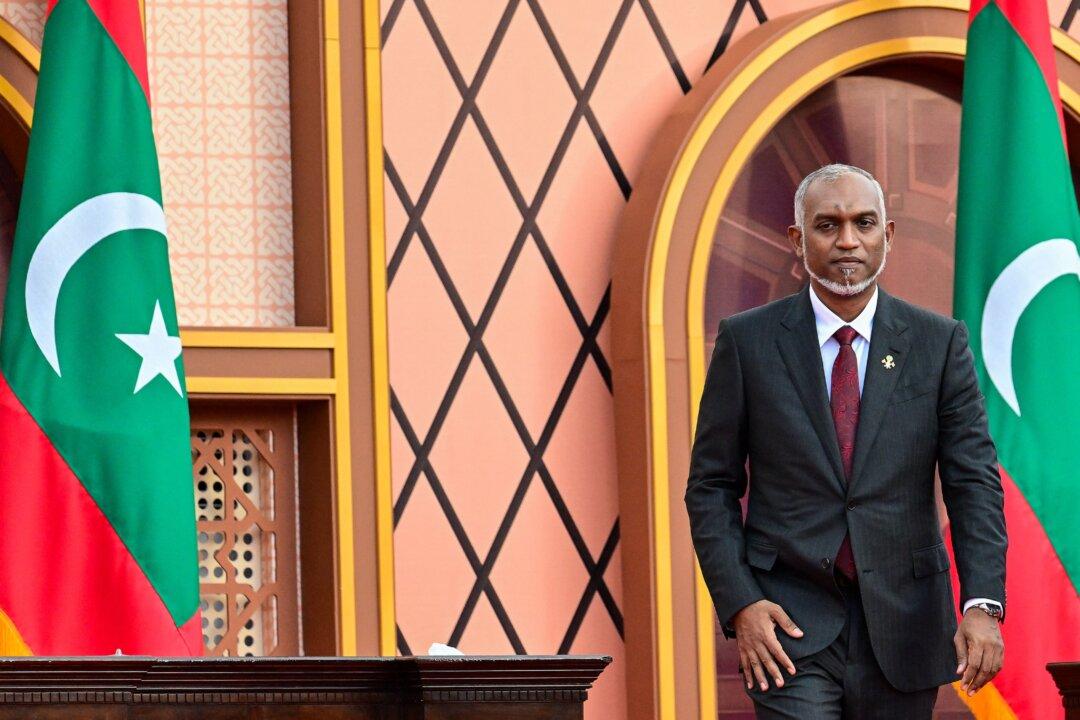There is a change in the geostrategic paradigm that the world has lived through for the last decade, and the United States is no longer the “unrivaled” superpower of the world, according to Dr. Thomas F. Lynch III, a distinguished research fellow at the U.S. National Defense University’s Institute for National Strategic Studies.
“And by superpower, I mean a country that had both unique capabilities, primarily militarily, but also economic and diplomatic, unrivaled by other countries. Second, that we applied those capabilities outside of our own region; that is, we applied them globally. And third, that other countries perceived us as being really a global, strident power that could influence them on a day-to-day basis,” said Lynch.
However, in the past 15-20 years, other countries started asserting their aspirations and interests, which were not aligning with that of the United States. These countries were ambitious about converting their “sinews of power” into things and situations that would allow them to display unique attributes, he said.
According to Lynch, these countries included Russia, which asserted itself militarily but also with respect to its gas and oil reserves. China started developing and building itself economically and then increasingly converted that power into military and other diplomatic tools and assets.
“So Russia and China have emerged, I would say, probably from the mid-2000s, but certainly since about 2014 and 2015 as other great superpowers who have the unique capabilities, who are operating globally not just in their own regions, and who other countries perceive as having voice and gravitas, militarily, economically, and diplomatically,” Lynch told Capitol Report’s host, Steve Lance.
The geostrategic framework that existed since the end of the Cold War no longer exists. The United States faces countries with power and reach but disagree with the framework for international relations, which the United States and its allies and partners established after the Second World War and built upon after the 1990–91 collapse of the Soviet Union, according to Lynch.
“We’ve applied those internationally; we all kind of know them and feel them. They’re the norms, rules, and procedures about how we do commerce, and trade and finance, and how we pursue international rights for humans abroad, and how we try to expand this zone of openness and democracy,” said Lynch, the author of three books and editor of “Strategic Assessment 2020: The Into a New Era of Great Power Competition.”
“Well, neither Russia nor China agrees with all of those premises. And now because they have power, because they have great power status, they are challenging that,” he said.

US Army’s Strength
The Heritage Foundation released a report in October 2022 that warned the U.S. military is at risk of being unable to meet the demands of America’s national interests. The “2023 Index of U.S. Military Strength“ acknowledged for the first time that the United States has now been adapting its national defense strategy to deal with two global scenarios, vis-a-vis China and Russia, Lynch said.“The Heritage acknowledged [it] this year and said, ‘Hey, we are weak because we can’t necessarily apply enough force to deal with both ... a Russia scenario, per se, and then also a second scenario, perhaps a China military scenario.’ And I think that’s a valuable assertion.”
The expert believes that the response of the U.S. military to the concerns addressed by this report would be that in the last four years, it has worked to “adjust and adapt and move” the military to meet challenges posed by communist China and Russia.
“And so I think what Heritage has done is unique, but I think it may lag a little bit from where our own budgeters and the U.S. military is and is trying to move,” said Lynch, adding that what the United States has done, particularly in the past two years, is to develop its military in order to better interact and interrelate with partner militaries.
For example, he said, the United States has been encouraging Japan, South Korea, and Taiwan “to build out and develop their military and their capabilities. ... Of course, so we’ve been working with and trying to get them to expand their military and their viability,” said Lynch.
He said even the attitudes of countries, such as Australia and India, that weren’t “seriously” interested in working with the U.S. military three to four years ago had changed their views.
“And you see that with, with some of the things that are being done in this relationship called the QUAD—which is the U.S., Japan, Australia, and India—which is a lot about non-military tools, binding together and showing a common front against a country like China that has very different values and views, but also is moving towards more military interoperability, more bilateral, trilateral, multilateral exercises at sea, in the air, and on land,” said Lynch.
He believes the Heritage report “may or may not” have given enough credit to U.S. work with partner militaries.
“It’s not just by us spending more, although that’s necessary ... we’re going to have to rely on friends, allies, and partners, not just NATO, but also friends, allies, and partners in the Asia-Pacific or Indo-Pacific.”







Friends Read Free